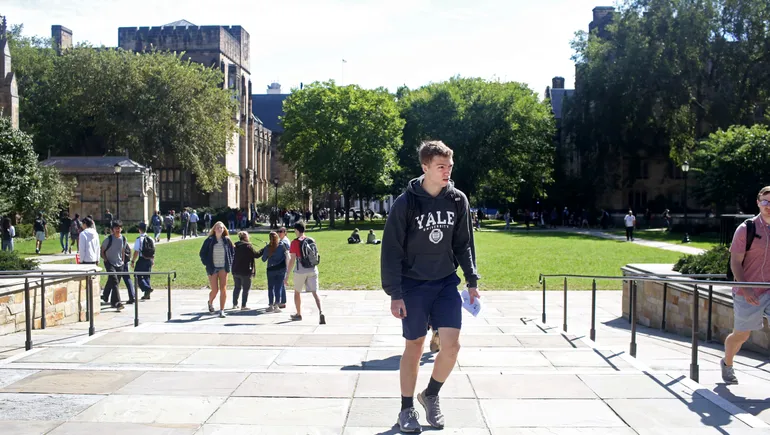Dive Brief:
- Yale University will once again require students to submit standardized test scores starting with applicants for the fall 2025 term, becoming the second Ivy League institution to reestablish testing requirements for admissions after a pause during the coronavirus pandemic.
- In an announcement this week, Yale officials said standardized testing requirements can help increase student diversity when used as part of “a whole-person review process.” However, they argued that focusing only on the SAT and ACT can discourage students from applying.
- Yale said it would allow applicants to report their Advanced Placement or International Baccalaureate exam scores as an alternative to the SAT or ACT — an approach the university called a flexible testing policy.
Dive Insight:
Yale’s announcement could signal a high-profile shift in the test-optional movement, which was supercharged by the pandemic. Dartmouth College, another Ivy League institution, also said earlier this month that it was reviving its standardized testing requirement for applicants, citing similar concerns about its test-optional policy inadvertently harming less-advantaged students.
However, the majority of four-year colleges have test-optional policies, according to a recent tally from FairTest, which advocates for limited use of standardized exams. It found that more than 1,800 colleges nationwide aren’t requiring the SAT or ACT for the fall 2025, including Cornell, Columbia and Harvard universities.
“Test-optional policies continue to dominate at national universities, state flagships, and selective liberal arts colleges because they typically result in more applicants, academically stronger applicants and more diversity,” Harry Feder, FairTest’s executive director, said in a statement Wednesday.
Yale officials took a different stance.
“Our researchers and readers found that when admissions officers reviewed applications with no scores, they placed greater weight on other parts of the application,” Yale said. “But this shift frequently worked to the disadvantage of applicants from lower socio-economic backgrounds.”
Students from well-resourced high schools can easily pack their applications with test alternatives, such as numerous advanced courses on their transcripts and lengthy activities lists.
But high-achieving students at lesser-resourced schools often don’t have access to the same opportunities, Yale said. When those applicants provide standardized test scores, admissions officials have greater confidence in them — even when they submit results below Yale’s median range.
However, the university argued that solely accepting SAT or ACT scores to fulfill the testing requirement may discourage some students from applying. Yale noted that its last four applicant pools — who applied under the institution’s test-optional policy — included record numbers of would-be first-generation college students, along with those from lower-income neighborhoods and who belonged to underrepresented groups.
